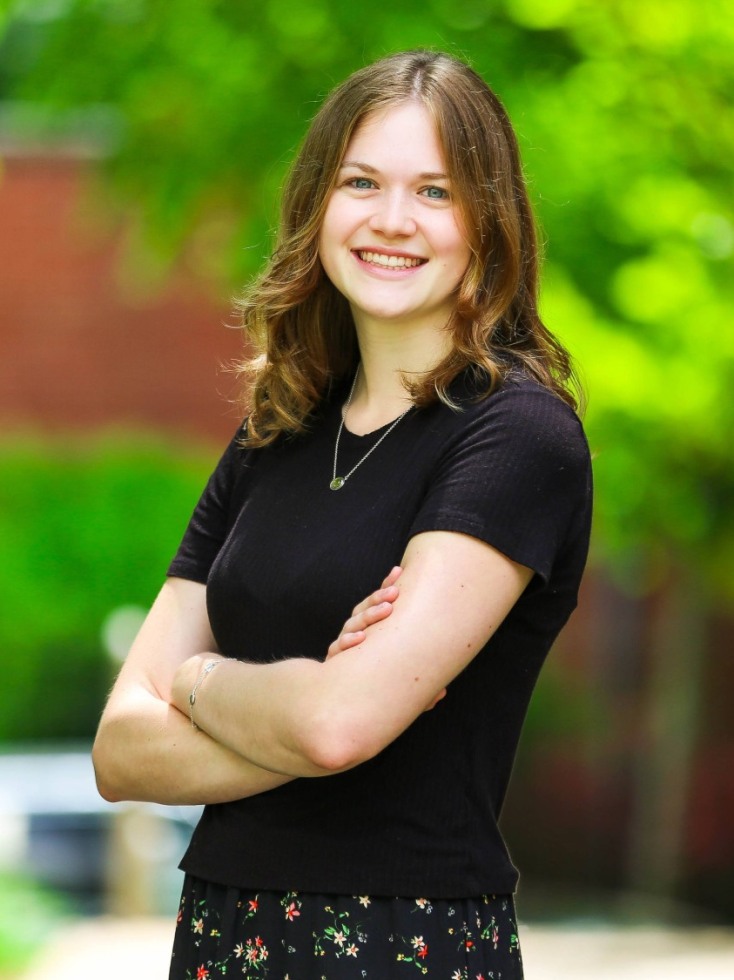The environment has been at the forefront of graduating senior Sarah Smith's mind for as long as she can remember. "I grew up in Maine," said Smith who served as a research assistant at Watson's Climate Solutions Lab (CSL) for two years, "so nature has always been a really big thing for me. Protecting nature and combating rising sea levels are important to Maine."
Smith said she was especially drawn to work in the environmental arena because she considers human-caused climate change the most important public policy issue of our time. "I care about a lot of policy issues," she said, "but, in my mind, we can't fix anything if we don't have a habitable planet anymore."
Smith's desire to delve deeper into climate change and sustainability led her to enroll in Jeff Colgan's Politics of Climate Change class in the spring of 2022. An article about the Acadia Center, a Maine nonprofit dedicated to advancing a low-carbon economy through technological innovation that Colgan assigned in class inspired her to successfully apply for a summer internship there. Smith spent the summer following her sophomore year at Acadia researching the potential environmental benefits of mass timber as a substitute for concrete and steel in construction.
When Smith emailed Colgan — who also serves as director of the CSL — to thank him for leading her to a summer job, she expressed an interest in getting involved in his research. That offer to help led to a research assistant position starting in the fall of her junior year. Over the past two years, Smith has made significant contributions to the lab's research projects, working closely with Colgan and CSL Program Manager Alexander Batten.
Smith's first assignment at the lab was to collect sources and do preliminary research on a project that examined how the Ukraine War affected energy costs in Europe. That research led to a highly cited report by Colgan and his collaborators that characterized the war as a missed opportunity for Europe to reduce its dependence on fossil fuels. Smith said she enjoyed working with Colgan. "Professor Colgan has so much passion for what he does," she said, "and he's also just such a kind, welcoming person. I loved working with him."
Colgan had high praise for Smith's work, "Sarah is exactly the kind of student that we love to see at Brown: smart, passionate, and committed to making the world a better place. I can't wait to see what she does after graduation."
Smith paused her work with CSL during the spring semester of her junior year while she studied sustainability abroad in Copenhagen. When she returned to campus for her senior year, she dove back into doing research for the lab.
This past year, she has been helping to lay the groundwork for an ambitious new CSL project, the Climate Resilience Scorecard. "We're creating a framework that will allow us to grade states on how resilient they are to climate change and how much they're doing to prepare for it," said Smith. "It's a completely new project, and we're building the system from scratch." When completed, the dashboard will allow state residents to see a letter grade that expresses how prepared their state is to deal with the oncoming effects of climate change.
